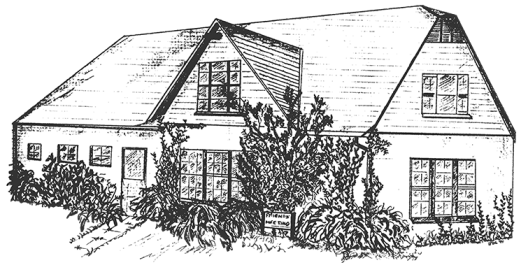Inward light
This refers to the power and inspiration of God or Christ coming inwardly to us to show us our true motivations, guide us, lead us, and give us strength to act on this guidance–thus bringing us into unity with the Spirit. This concept differs from “conscience,” which is a developed awareness of the merits or faults of our conduct, intentions, or character and the sense of obligation to do right. The “Inward Light” is also called the “Light Within,” the “Christ Within, the “LIght of Christ,” the “Holy Spirit,” and “The Seed.” Often, the term is written “Inner Light,” implying that the light comes from each of us, but that is not part of early Friends’ concept.
Hold in the light
Refers to the Quaker community’s practice of “holding someone in the light” in times of trouble or special joy; asking for God’s presence to illumine a person, situation, or problem, whether in concern or thanksgiving.
Discernment
That which we can discover and experience of the Light or spirit or God is the object of Quaker discernment. That is what we seek to commune with in our worship, what we strive to serve in our business meetings, what we simplify our lives to focus upon. In Quaker faith and practice, concordance with the Light or spirit or God is our yardstick for truth. Quakers may feel they are “led” to discern a particular understanding of a circumstance or issue.
“centering”
This describes a process of quieting one’s thoughts and focusing on the Light or spirit or God. It is a process of putting all peripheral matters aside for a time in order to meditate and listen more completely.
Meeting for worship with a concern for business
Friends believe the true church is not a building but people who gather together to worship and for other purposes. Places of worship are called meetinghouses. Friends “go to meeting” as others go to church. The Quaker equivalent of a diocese or synod is a yearly meeting. Worship for Friends is traditionally based on corporate silent waiting upon the Light or spirit or God to lead into truth. When Friends gather to conduct the business of the Society, they gather in a spirit of worship to seek truth in their proceedings.
Clerk
Friends avoid the use of honorific titles because of their belief in basic human equality. Accordingly, the person whose responsibility it is to facilitate the decision-making process of a meeting for business is given the functional title of clerk. The yearly meeting has a clerk and committees, subcommittes, task forces, and other groups with specific mandates have clerks.
Sense of the meeting (consensus)
Quakers do not vote while conducting the business affairs of the Society of Friends, nor do they seek a simple majority decision. Instead, they seek to arrive at a decision that is shaped and formed by the best insights of all present. The leader (clerk) of the meeting for business attempts to shape and record a concluding statement on the matter under discussion, to which the group gives its approval or disapproval. This is called “gathering a sense of the meeting”.
Stand aside / Stand in the way of consensus
If a person feels conscientiously that a proposed decision is not the best formulation of truth, s/he is obliged to express this belief. When objection is rooted deeply in conscience, the person may choose to “stand in the way of (block) consensus.” If the matter is less consequential for the person, s/he may decide to “stand aside” and allow the decision to be made. In 1827 a division occurred within Philadelphia Yearly Meeting when its members could not agree on who was to be clerk. The issue involved the visits and preaching of Long Island Quaker Elias Hicks in violation of the will of numerous meetings, which felt his views contradicted the historical tradition of Friends. Ultimately five yearly meetings divided over the issues related to this split – the Hicksite schism; consensus was regained in New York and Philadelphia Yearly Meetings in 1955
